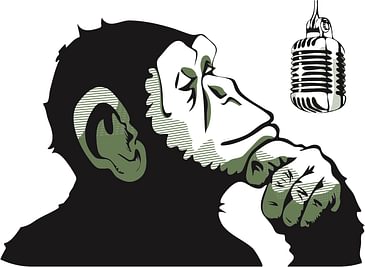
Very Bad Wizards
Very Bad Wizards is a podcast featuring a philosopher (Tamler Sommers) and a psychologist (David Pizarro), who share a love for ethics, pop culture, and cognitive science.
Episode 283: When Elephants Podcast
David and Tamler talk about Caitrin Keiper’s wonderful sprawling essay on elephant life and society and the many philosophical questions surrounding these extraordinary creatures. What kind of mental states can we attribute to them? Do they have a kind o...
Episode 282: Fearful Symmetry (Borges' "Death and the Compass")
A Rabbi is found dead in a hotel room, stabbed in the chest. The room is filled with Kabbalah texts and a single page in an typewriter that reads “The first letter of the name has been written.” The celebrated detective and “reasoning machine” Erik Lönnr...
Episode 281: Choose Your Fighter
We dig into the biggest rivalry in Tamler’s profession, analytic vs. continental philosophy. Are analytic philosophers truly the rigorous, precise, clear thinkers they take themselves to be? And is continental philosophy really just a bunch pretentious c...
Episode 280: Mad Masque (with Phil Ford and J.F. Martel)
Phil Ford and J.F. Martel from the great "Weird Studies" podcast join us for a whirling discussion of Edgar Allan Poe’s mesmerizing tale of decadence and disease “The Masque of the Red Death." We also talk about weird fiction more generally, why it’s so ...
Episode 279: The Greenhouses We Burned Along the Way (Lee Chang-dong's "Burning" Pt. 2)
David and Tamler conclude their discussion of Lee Chang-dong’s "Burning" – we talk about the hunger dance at twilight, Ben’s greenhouse burning habit, Shin Hae-mi’s mysterious disappearance, Lee Jong-su’s clumsy and doomed quest to find out what really h...
Listener Reviews
Read what other people are saying about our podcast!
Love these fools
Been listening for years, one of the few pods I listen to that makes me laugh out loud in public.
The GOAT
Been listening to these guys for almost 5 years now. Thanks for many laughs and insights. You two have helped me through some very hard times!
Entertaining and illuminating
It’s like a fortnightly visit from two funny and smart friends I wish I had in my real life.